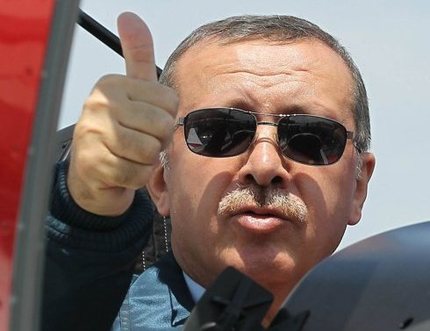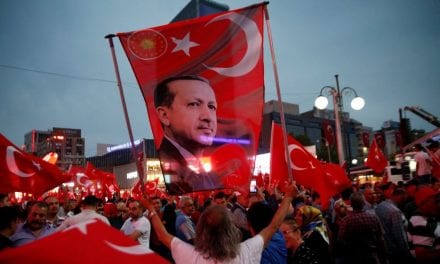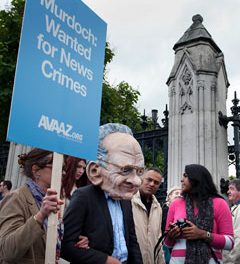By Zakir Gul, Ph.D. Modern Diplomacy
The ruler during Turkey’s rise to (and probable fall from) power—Erdogan—reminds me of two stories: the real-life King Saul and William Shakespeare’s fictitious character Lord Macbeth. The similarities are striking.
King Saul was a tall man and talented warrior; however, the victory of his army came with David’s slingshot that killed Goliath. King Saul came to power with good intentions and successfully united and gathered people against Goliath and his army. In the end, however, jealousy led to King Saul’s fall from power. He turned his spear toward David and his own people, both of whom he saw as a potential threat to his position of authority. Lord Macbeth was a good warrior and an upstanding man until he listened to the witches and began to pursue his selfish ambitions in a relentless quest for power, to be king. This unchecked ambition transformed Macbeth, leading him to slay King Duncan, only to be killed himself at the hands of Macduff.
Other dictators and tyrants, who may have believed that their actions were honorable or for the good of their people, ultimately fell from power following public uprisings, the condemnation of the international community and even war, abound—from Saddam Hussein of Iraq to Muammar Gaddafi of Libya to Adolf Hitler of Germany to Benito Mussolini of Italy. The list is long and continues to grow in at least some parts of the world. Take Turkey, for example.
What will happen in Turkey? Will Erdogan prevail in consolidating his power and dismantling the democratic rule of law that the people of Turkey had enjoyed? Will Erdogan accelerate the implementation of illegal and inhuman policies and repressive decrees despite criticism from the West? It seems certain that he will. While the leaders of some countries issued verbal warnings after six human rights activists were jailed in Turkey, words alone are not enough. The West must act via diplomacy. To do otherwise will only increase Erdogan’s appetite for the destruction of democracy in Turkey. Erdogan was elected by the people through a democratic election process, and he shall lose his position through the will of the people to rise in opposition to a tyrant. Military intervention from within the country itself or by outside forces must not be among the options. Using democracy to preserve democracy is the only viable and correct solution. However, the question remains: How will the people see the reality—the death of democracy in their country—if all of the media manipulates realities and serves for the benefit of the ruler, leaving the people unable to know the truth?
Media outlets and journalists are under siege in Turkey at the behest of the government. According to a 2016/2017 Amnesty International report, hundreds of media outlets were arbitrarily and permanently closed, and numerous journalists other media workers lost their jobs with executive decrees. Freedom of expression has been stifled. As the reportnotes, “At least 375 NGOs, including women’s rights groups, lawyers’ associations and humanitarian organizations, were shut by executive decree in November.” But the scope of the government’s repression is broader still, with the report saying, “There was an increase in cases of torture and other ill-treatment reported in police detention…The state of emergency removed protections for detainees and allowed previously banned practices, which helped facilitate torture and other ill-treatment: the maximum pre-charge detention period was increased from four to 30 days; and facilities to block detainees’ access to lawyers in pre-charge detention for five days, and to record conversations between client and lawyer in pre-trial detention and pass them to prosecutors were introduced. Detainees’ access to lawyers and the right to consult with their choice of lawyers—rather than state-provided lawyers—was further restricted. Medical examinations were carried out in the presence of police officers and the reports arbitrarily denied to detainees’ lawyers.”
The government’s actions are arbitrary and indiscriminate, and tolerance of criticism is non existent. For example, the co-leaders of pro-Kurdish party, the Peoples’ Democratic Party (HDP),have been detained over a year and brought in court only after 14 months. Even the chair of Amnesty International of Turkey was detained along with othersengaged in defending peace and peaceful activities. The situation is more than worrisome. An open letter from the major human rights defenders aptly describes the grave state of affairs in Turkey and the need for democracies around the world to take a stand, saying, “How world leaders respond now is crucial. Although some commendably expressed concern at the G20 Summit, one-off interventions are not enough. It is time for world leaders to stand up and make a strong, determined and compelling case for human rights, dignity and justice, and the necessity of a strong and flourishing civil society as guardians of these values—both in Turkey and around the world.”Have things gotten better? No. The Turkish government even broadened its authority.
Most recently, Turkish government has issued arrest warrants for two former US officials with the claim of involvement in the failed military coup that took place last year, according to the Washington Free Beacon report. It was indicated that even a bounty was placed for their heads. In Syria, Turkish government acts as if it is the only actor and power. The question is, “who gave Erdogan and its government the authority to act like they are the sheriff of the East and West?!”.
For the sake of democracy in Turkey and peace in the region, Erdogan must be made to join the ranks of the fallen tyrants, along the lines of King Saul and Lord Macbeth and others, who preceded him in history; but only with the hands of the Turkish citizens and only with means of democracy and diplomacy (by the democratic states).



















